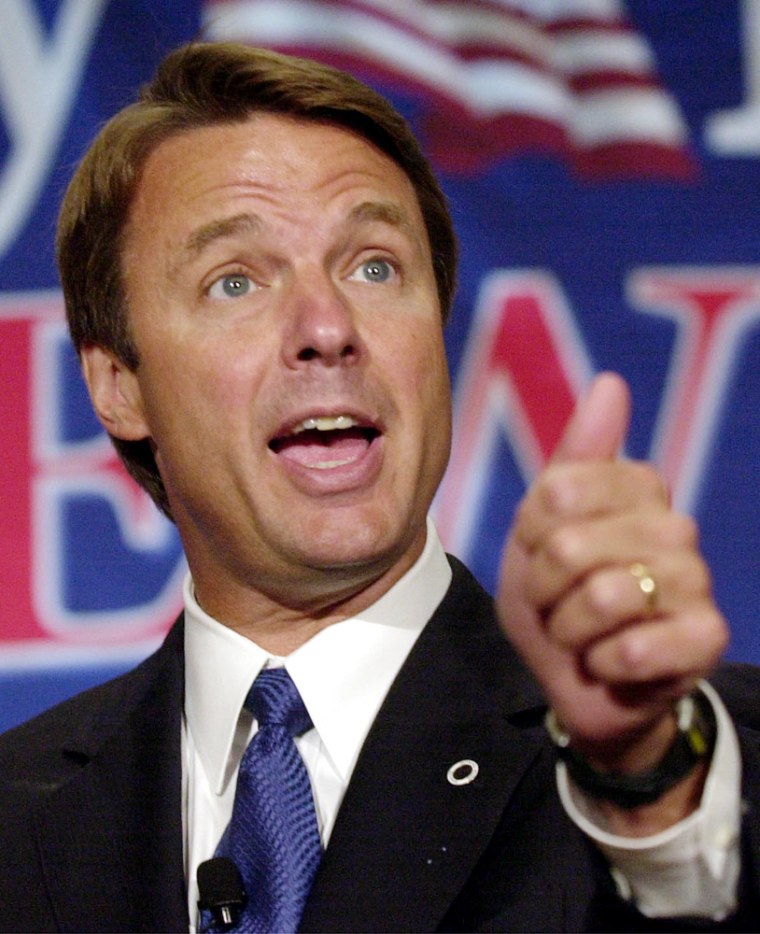Experience is like cholesterol: there’s the good kind and the bad kind.
John Edwards, the Democrat who wants to be vice president, doesn’t have much of either. Dick Cheney, the incumbent, has too much of the bad kind – just look at his statements on Iraq for evidence of that.
From the moment John Kerry announced Edwards as the VP pick, the Republicans leaped on his lack of experience and used Kerry’s own words to do it. The Republican National Committee Web site cites a Los Angeles Times article that quotes Kerry knocking Edwards during the primaries in February. “This is not the time for on-the-job training in the White House on national security issues,” Kerry said.
Edwards gets high grade
The Republicans have a point. But it’s not the only point, or even the most relevant one. It’s true that Edwards’ only political experience is representing North Carolina in the Senate for less than one term. And it’s impossible to imagine that a black person with so little experience would ever have such an opportunity. For that matter, African Americans with loads more experience still have not been chosen to run for the top two offices in the land. But that’s another column.
What matters now is what Edwards has done during his five and a half years in the Senate and what he brings to the Democratic “John-John” ticket. It should be noted, however, that President Bush, who had been governor of Texas for six years, was elected with not much more public office experience than Edwards. But unlike Bush, when it comes to issues important to black America, those who know Edwards best like him a lot.
The NAACP, which rates all members of Congress but endorses no candidates, has graded Edwards twice, giving him an average score of 97.5 percent – damn near perfect. “Edwards has been a very good friend to the NAACP civil rights agenda,” says Hilary Shelton, director of the organization’s Washington office.
Edwards’ modest Southern roots – he is the son of a mill worker -- combined with his progressive politics, seem to give him a special connection to African Americans, not unlike the one Bill Clinton has. It’s a connection that’s not always directly related to policy. (Clinton certainly got a pass more often than he should have on criminal justice and other issues.) The connection comes from really understanding the concerns of black people and having the courage as a Southerner to do what’s right.
Humble beginnings appreciated
“In many ways his humble beginnings is something that is very much appreciated in the African American community, much like Bill Clinton,” Shelton adds. “He (Edwards) understands the challenges of poverty in our country. In many ways he has a lot in common with the African American community, much like Bill Clinton.”
Of course, modest roots and humble beginnings for white folks remain a much more privileged situation than similar circumstances for black people. Edwards’ climb to millionaire lawyer status would have been infinitely more difficult had he been black.
The good news is he seems to appreciate that. His personal experience is important to that understanding. In May, on the 50th anniversary of the Brown v. Board of Education decision, Edwards told the Senate: “From the time I was very young, I saw up close the ugly face of segregation and discrimination. I saw young African-American kids shuttled upstairs in movie theaters. I saw white only signs on restaurant doors and luncheon counters. When I was in the sixth grade, my teacher walked into the classroom and said he wouldn’t teach in an integrated school.”
southerners "special responsibility"
And last year, he told a Martin Luther King program that all Southerners “have a special responsibility to lead on civil rights … And every politician from the South – whether you're a mayor, a governor, a senator, or president – has a moral obligation to make the mission of civil rights our own.”
He’s done that, say those who watch what Congress does on civil rights issues. Among other things, they cite his current opposition to Terrence Boyle, whom Bush has appointed to the U.S. Court of Appeals for the 4th Circuit. Boyle’s record on civil rights for African Americans, women and the disabled makes the blood of civil rights activists boil.
Edwards, a member of the Senate Judiciary Committee, refused to turn in a blue slip approving Boyle, the Senate’s symbolical way of allowing an individual member to block a nominee.
“We need leaders who not only talk the talk of civil rights and equality, but are willing to DO (original emphasis) something about it,” Edwards said in his Brown speech.
Sounds good. But remember those words. All politicians need a push to make sure they do more than just talk the talk. Edwards and Kerry are no exceptions.
